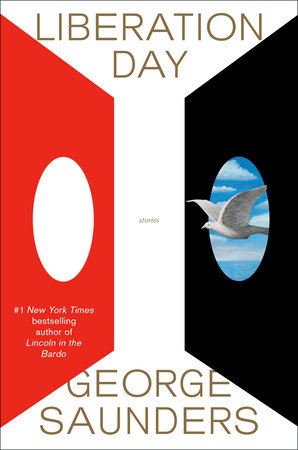
I think he is correctly diagnosed as schmaltzy and precious but at his best, there is nobody who writes towards my philosophy of love and purpose quite like George Saunders.
The strongest critique you can level at Liberation Day is that it is an also-ran; it lacks the ambition of Lincoln in the Bardo and it lacks the sustained quality of Tenth of December. It is certainly lesser works than both books, and feels more spiritually akin to Someone Who Will Love You In All Your Damaged Glory. — a collection that I loved not because I thought it was a particularly excellent or interesting work of literature but because it touched my heart.
There is a same-i-ness to the questions Saunders asks in this book: all variations on a question of what do we owe each other and ourselves in a world with no faith in exogenous redemption?. His answer has not changed much: we owe ourselves — and each other — respect and love and kindness. He writes a compelling humanism with a prose and wit that make me cry and laugh; he is schmaltzy and he is precious and so am I, on my best days.
★★★★
Highlights
In that instant, she saw it: God, she loved her life so much. The family of ducks that sometimes came waddling across the yard like they owned the place. The way Derek had recently started eating dinner with his winter hat on, elbows on the table, like a little trucker. Last week, Keith had arranged the plastic mini-animals on the windowsill (giraffe, cow, stork, penguin, elk) in a circle around a corn kernel and, in the elk’s antlers, had stuck a Post-it note: “Worshipping some mysterious object.”
How do we do that? she said. Drop it?
You just tell me to drop it, he said.
Now? she said.
Now works, he said.
Sweetie, no one is coming. To see how good we have done/are doing. It is just us. Forever. Until a flood gets us or the air or food stops coming.
Is this world we have made a world in which lovers may thrive?